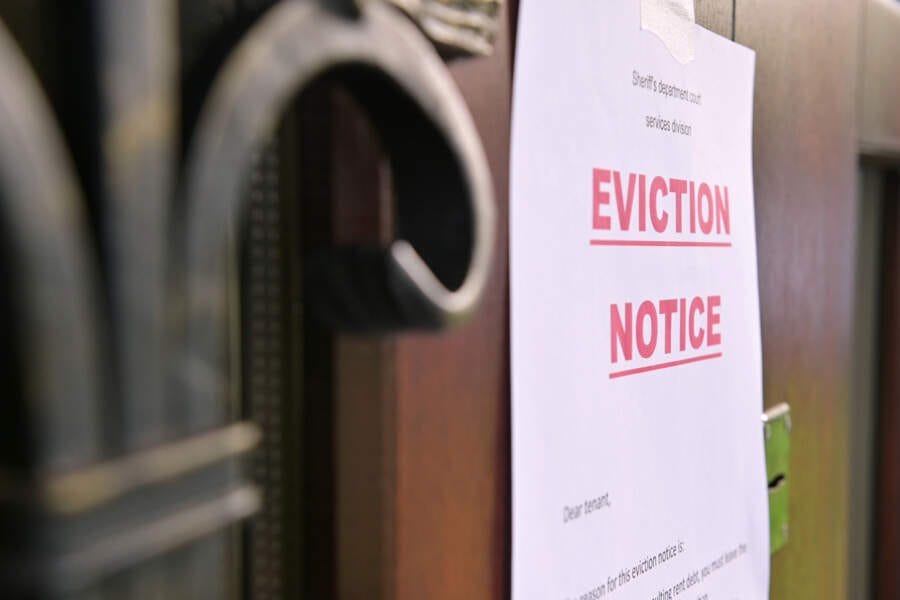
Last year, the government announced that Section 82 of the Coronavirus Act 2020, which prevents landlords of commercial properties from being able to evict tenants for rent arrears, will end on 25 March 2022. With only one week to go until the new law is put in place, and an estimated £7.5 billion in rent arears due to real estate landlords, Simon Waterfield, partner and specialist property dispute solicitor at Nelsons, discusses the chaos that could occur in the transition period between legislation and what the new process will involve.
What is the new legislation?
The Commercial Rent (Coronavirus) Bill will become legislation on 25 March 2022, subject to its passage through parliament, and will replace Section 82 of the Coronavirus Act 2020, which is due to end on the same day.
Under the Coronavirus Act, commercial tenants are protected from eviction until its end on 25 March 2022. The Commercial Rent (Coronavirus) Bill is intended to provide commercial landlords and tenants with a process for resolving disputes relating to the payment of Covid-19 rent arrear payments. The government’s ultimate aim with the new legislation is to help return the market to normal, pre-Covid times.
The bill will apply to commercial rent debts in England and Wales, related to the mandated closure of businesses – for example gyms, pubs, restaurants, retail (including supply chains), leisure, manufacturing, industrial and logistics, and sports – during the pandemic, but will not include debts outside of the ‘protected period’ or tenants who voluntarily chose to close during that period.
The bill will enable landlords and tenants to apply to an arbitrator to resolve any disputes regarding the ring-fenced rent debts and is supported by a new Code of Practice. This code offers guidance on how parties should resolve Covid-19 commercial rent disputes. The guide aligns with the bill, providing additional guidance on how parties should negotiate, and sets out:
- What the arbitration process will look like;
- The type of evidence considered;
- The key principles of fairness;
- Affordability; and,
- The viability that it will adhere to.
What about the ‘protected period’?
A ‘protected period’ refers to the period during which the tenant’s business was subject to restrictions as a result of coronavirus regulations.
However, the bill does not appear to consider multiple protected periods. For example, tenants who were able to open in England during summer 2020 but were then forced to close again, can treat the whole of the period through to when they were allowed to re-open again in the spring or summer of 2021 as a protected period.
Furthermore, protected periods include a period during which any ‘specific coronavirus restriction’ is applied to the business. For example, hospitality will include periods during which there were limits in place, such as the limit on the number of households and the size of parties.
If an agreement cannot be reached?
The new Code of Practice sets out that tenants unable to pay in full should negotiate with their landlord, with the expectation that the landlord waive some, or all, of the rent arears where they are able to.
However, if an agreement cannot be reached, either party can apply for the matter to be referred to the legally binding arbitration process.
The first part of the process is a letter that notifies either party, including a proposal for settlement of the rent arrears in line with the new code. If this does not result in an agreement, an application for arbitration can be made.
The other party then has 14 days to submit their own proposal. The parties will then have the option to request a public hearing for the arbitration, which the arbitrator will seek to conduct within 14 days. If no request is made, the arbitrator will consider the matter based on the documents and evidence provided.
Finally, both parties will be notified of the award made within 14 days of the arbitration hearing and the arbitrator’s award will be legally binding. When deciding what award to make, the arbitrator will assess the proposal and evidence submitted by both parties in accordance with the principles, viability, and affordability set out within the new code.
However, it’s worth bearing in mind that this is quite a time-consuming process, which is why the government believes it should be a last resort and must consider the pain that the hospitality sector has faced during the pandemic.
Continuing to court
If the landlord has issued court proceedings before 10 November 2021, then they are still entitled to continue with those proceedings. However, if the landlord has issued proceedings on or after 10 November 2021, the tenant would then have the right to ensure that proceedings are stayed, pending arbitration.
Elements of unknown
With there now being only one week to go until the new bill is put into place, it can be seen that the legislation should minimise chaos when the emergency moratorium comes to an end.
However, there are still unanswered questions, despite the close proximity to the bill being put in place, and an inevitability that there will be a significant backlog of disputes that will take time to resolve. That’s why the legislation has still not received Royal Assent, and so key factors, such as who the arbitrators will be, have still not been announced.
Another example of this uncertainty is around debts outside of the protected period and the general transition period to the new legislation, so it is vital for both landlords and tenants to communicate with each other and seek legal advice at the earliest possible opportunity should it be required.
For more information on how Nelsons can support your business in a dispute, please visit https://www.nelsonslaw.co.uk/property-disputes/ or call 0800 024 1976.

Simon Waterfield


